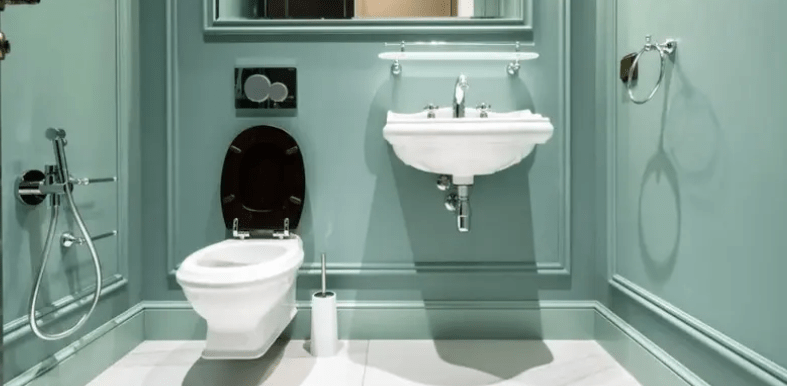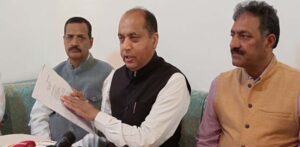Reality of Toilet Seat Controversy: A Case of Mismanagement at Top Level

- How US Elections Could Impact and Benefit Indian Hill States Like Himachal - October 31, 2024
- Himachal’s Tourism Future Hinges on Effective Waste Management - October 29, 2024
- Kangra Airport Expansion: First Landowners Compensated - October 22, 2024
Dharamshala/Shimla: Chief Minister Sukhwinder Singh Sukhu has once again found himself at the center of a political storm, this time over a proposed “Toilet Tax” that briefly stirred state and national politics. Although the notification has since been withdrawn, the controversy has exposed deeper issues within the government. The fallout reached such a level that even Union Finance Minister Nirmala Sitharaman criticized the move, claiming it would “bring shame to the country.”
The ‘Toilet Tax’ Controversy
The uproar began when a notification was issued on September 21, 2024, proposing a tax on properties—mainly hotels—that had their own water connections but were using government sewage systems.
The tax aimed to generate revenue by charging these establishments for their sewage usage, but it quickly ignited a backlash. As public outrage spread, Additional Chief Secretary Onkar Sharma stepped in late Friday to clarify that the move was meant only for specific properties and that the notification had already been withdrawn. “It was decided to charge them, but the notification was withdrawn after a review,” Sharma stated.
Also Read: https://thenewzradar.com/as-business-driven-leaders-rise-himachals-true-political-legacy-fades/
National Attention and Political Fallout
What might have been a minor administrative issue rapidly escalated when Nirmala Sitharaman took to social media to denounce the move. Her tweet not only criticized the proposed tax but also suggested that such policies could tarnish India’s reputation on the global stage.
As the controversy gained momentum, the lack of a coordinated response from the Himachal government became evident. Chief Minister *Sukhwinder Singh Sukhu* was left to shoulder the blame alone, as top officials and political advisors failed to manage the situation effectively.
A Pattern of Administrative Missteps
This is not the first time that Sukhu has found himself isolated during a crisis. Over the years, the *Congress-led government* in Himachal Pradesh has repeatedly faced backlash over poorly handled policies and miscommunications.
While Sukhu has been vocal about his plans to make Himachal Pradesh self-reliant, the absence of a strong support team has often left him vulnerable to political attacks. Despite hiring media advisors and social media managers, the government’s communication strategy has largely fallen flat, leaving Sukhu exposed during controversies like the Toilet Tax.
Legal Implications of the Proposed Tax
Had the Toilet Tax remained in place, its legal consequences could have been far-reaching. Constitutional experts pointed to Article 14 (Right to Equality) and Article 21 (Right to Life) as potential grounds for challenging the tax. A discriminatory tax on toilets, if imposed arbitrarily or unfairly, could have violated Article 14 by failing to ensure equal treatment. Additionally, Article 21 recognizes access to basic sanitation as part of the right to life. If the tax had significantly impacted the affordability of toilet seats or sanitation facilities, it could have been interpreted as infringing on this fundamental right.
Government’s Leadership Crisis
While the Toilet Tax controversy has now been defused, the episode reveals a deeper leadership crisis within the Sukhu administration. Despite Sukhu’s earnest efforts to push for policies that make Himachal Pradesh more self-sufficient, a lack of internal cohesion and poor crisis management have repeatedly undermined these initiatives. The Congress government in Himachal will need to address these weaknesses if it hopes to avoid future controversies and restore public confidence in its leadership.




